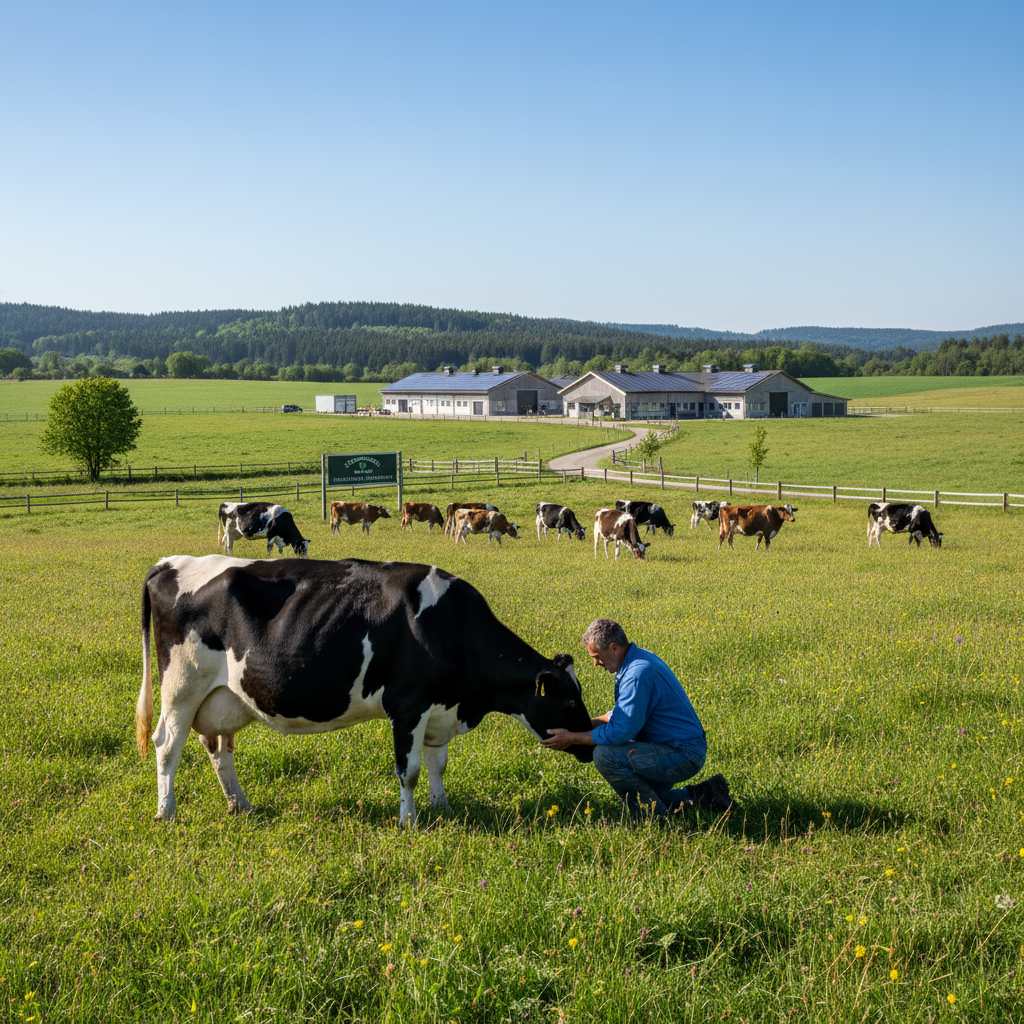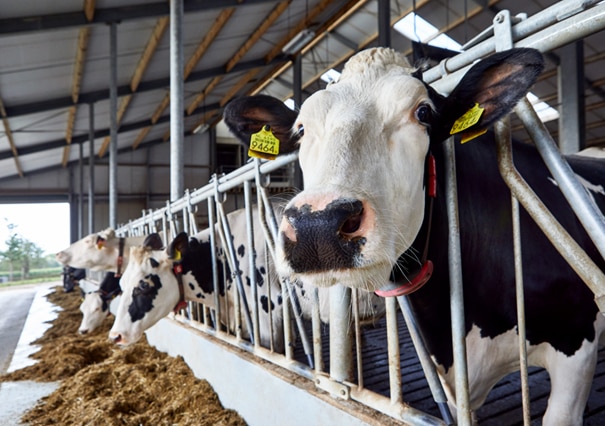
Evaluating Bovaer’s Safety in Dairy Cattle: Balancing Methane Reduction and Animal Health
Bovaer, containing 3-nitrooxypropanol (3-NOP), reduces methane emissions by inhibiting enzymes in the cow’s rumen.
While effective in climate mitigation, concerns about its impact on animal fertility and health have emerged.
In response, Norway’s largest dairy supplier, Norsk Melkeråvare, has suspended its use pending safety evaluations.
Collaboration between researchers, farmers, and regulators is ongoing to balance methane reduction with animal welfare.
This case highlights the need for cautious adoption of new technologies to ensure sustainable and responsible dairy farming.
Summary
Frequently Asked Questions
Q: Effects of Bovaer on cows
A: Bovaer is a feed additive given to cows that helps reduce methane emissions produced during digestion. By inhibiting specific microbes in the cow's stomach, it decreases the amount of methane released, which benefits the environment by lowering greenhouse gases. Additionally, Bovaer can improve feed efficiency, meaning cows convert their feed into energy more effectively without negative effects on their health or milk production.
Q: Why did Norway suspend Bovaer
A: Norway suspended Bovaer, the world's first carbon capture and storage (CCS) vessel, due to technical challenges and safety concerns encountered during its early operation. The suspension was a precautionary measure to address these issues and ensure compliance with environmental and safety regulations. Authorities and the operating company prioritized resolving the problems thoroughly before resuming its pioneering CCS activities to reduce carbon emissions in the maritime industry.
Q: Methane reducing additives for cows
A: Methane reducing additives for cows are substances added to cattle feed to lower the amount of methane gas produced during digestion. Methane is a potent greenhouse gas emitted by cows as part of their natural digestive process, primarily through enteric fermentation. Common additives include fats, oils, seaweed (such as Asparagopsis), and specific feed supplements like 3-Nitrooxypropanol (3-NOP), which inhibit methanogenic microbes in the rumen. These additives help reduce environmental impact while maintaining or improving animal health and production efficiency.
Q: Bovaer cow health risks
A: Bovaer is a feed additive used to reduce methane emissions in cows, and studies so far indicate it is generally safe for cattle health when used as directed. However, as with any feed additive, there may be potential risks such as digestive disturbances or altered rumen function if not properly administered. It's important to follow dosage guidelines and consult with a veterinarian to monitor for any adverse effects. Long-term studies are ongoing to fully understand the impact of Bovaer on cow health.
Q: Norsk Melkeråvare Bovaer suspension news
A: Norsk Melkeråvare, a Norwegian dairy raw milk supplier, has announced the suspension of its Bovaer project, which focused on producing low-methane-emitting dairy cows. The suspension follows regulatory and market challenges affecting the project's implementation. This decision impacts ongoing efforts to reduce the environmental footprint of Norwegian dairy farming, as Bovaer cows are genetically selected or altered to emit less methane. Further updates will depend on the company's strategic review and external factors influencing dairy sustainability initiatives.
Key Entities
Norsk Melkeråvare: Norsk Melkeråvare is a Norwegian dairy cooperative involved in the collection and processing of raw milk products. It plays a significant role in supporting sustainable dairy farming and reducing methane emissions through innovative projects like Bovaer.
Bovaer: Bovaer is a feed supplement that reduces methane emissions from cattle by inhibiting enzymes in the digestive system. It is gaining attention as a practical solution to decrease greenhouse gases in the livestock industry.
Johnny Ødegård: Johnny Ødegård is known for his leadership within the Norwegian dairy sector, particularly with Norsk Melkeråvare. He is actively involved in initiatives aiming to improve sustainability and environmental impact in dairy production.
MetanHUB: MetanHUB is a collaborative platform dedicated to advancing technologies that reduce methane emissions in agriculture. It supports projects like Bovaer as part of broader efforts to mitigate climate change in the farming sector.
Danish government: The Danish government has been investing in innovative agricultural technologies to reduce methane emissions and combat climate change. It participates in international cooperation and supports initiatives such as MetanHUB to promote sustainable farming practices.
External articles
- Methane-cutting cow feed trials on Arla dairy farms end
- HUGE: Norway SUSPENDS Bovaer use in cows
- Norway pauses Bovaer after Danish cows collapse
Articles in same category
- Word of Faith Movement and Prosperity Gospel: Critical Doctrine Analysis
- 2025 Naturalization Civics Test: Harder Requirements for U.S. Citizenship Applicants
- Maine Senate Race: Progressive Ex-Marine Graham Platner’s Controversy Threatens Democrats’ Bid Against Susan Collins
YouTube Video
Title: BOVAER COWS ARE DYING! | Is the dairy industry lying to us?
Channel: Dr Renee
URL: https://www.youtube.com/watch?v=QHaTnk04z_o
Published: 2 days ago
Politics
